- how to find the best alternatives for strong bones
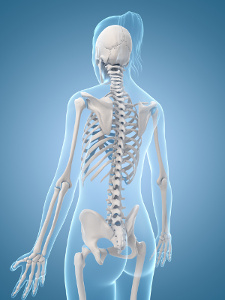 Many people avoid dairy products because they are lactose intolerant, are vegan, or for other reasons. Milk is a good source of nutrients, especially calcium, but you can easily get enough calcium from other food sources. What is more, it appears that vitamin D, vitamin K2, and the calcium/magnesium ratio is even more important than calcium alone for the structure and maintenance of strong bones. Another thing to remember is that sugar, soft drinks, stimulants, and certain types of medicine can disrupt the bone-building processes. Therefore, having strong bones is about a lot more than dairy products and calcium alone. Finally, don’t forget that daily weight-bearing exercise stimulates bone density.
Many people avoid dairy products because they are lactose intolerant, are vegan, or for other reasons. Milk is a good source of nutrients, especially calcium, but you can easily get enough calcium from other food sources. What is more, it appears that vitamin D, vitamin K2, and the calcium/magnesium ratio is even more important than calcium alone for the structure and maintenance of strong bones. Another thing to remember is that sugar, soft drinks, stimulants, and certain types of medicine can disrupt the bone-building processes. Therefore, having strong bones is about a lot more than dairy products and calcium alone. Finally, don’t forget that daily weight-bearing exercise stimulates bone density.
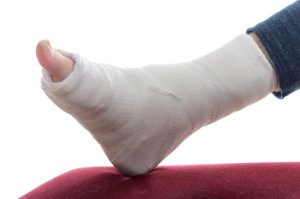 Lack of magnesium makes your bones weak. However, according to a study published in the European Journal of Epidemiology, if you increase your magnesium intake from food or supplements, you can prevent bone fractures, which is a common problem among middle-aged and old people. Although calcium and vitamin D are normally touted as being important for strong bones, it is equally important to get enough magnesium and to generally be aware of factors such as diet, medicine consumption, and lifestyle, all of which can deplete levels of this essential mineral.
Lack of magnesium makes your bones weak. However, according to a study published in the European Journal of Epidemiology, if you increase your magnesium intake from food or supplements, you can prevent bone fractures, which is a common problem among middle-aged and old people. Although calcium and vitamin D are normally touted as being important for strong bones, it is equally important to get enough magnesium and to generally be aware of factors such as diet, medicine consumption, and lifestyle, all of which can deplete levels of this essential mineral.
- and read more about why too much calcium and overconsumption of dairy products can be harmful
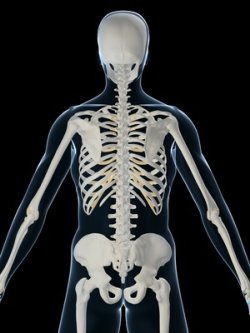 Fragile bones, also known as osteoporosis, is an insidious scourge. Science has its eyes on calcium and vitamin D, but osteoporosis may also be a result of getting too little vitamin K2 and magnesium, both of which are nutrients that must be properly balanced with calcium. If not, calcium may do more harm than good. Carbonated beverages, stimulants, and medicine (including statins) may also interfere with the bone-building processes. Therefore, strong bones require a lot more than calcium, and it is also important to remember daily, bone-challenging exercise.
Fragile bones, also known as osteoporosis, is an insidious scourge. Science has its eyes on calcium and vitamin D, but osteoporosis may also be a result of getting too little vitamin K2 and magnesium, both of which are nutrients that must be properly balanced with calcium. If not, calcium may do more harm than good. Carbonated beverages, stimulants, and medicine (including statins) may also interfere with the bone-building processes. Therefore, strong bones require a lot more than calcium, and it is also important to remember daily, bone-challenging exercise.
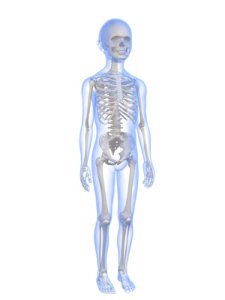 We consume far too much sugar from candy, soft beverages or in the form of concealed sugar in our food. This impairs the body’s uptake and utilization of calcium and magnesium. Sugar can skew the body’s mineral balance, thereby setting the stage for osteoporosis and an increased fracture risk caused by minor strains. Children and youngsters are particularly prone to bone weakening and osteoporosis from an early age, which is why there is good reason to lower the threshold level for sugar intake.
We consume far too much sugar from candy, soft beverages or in the form of concealed sugar in our food. This impairs the body’s uptake and utilization of calcium and magnesium. Sugar can skew the body’s mineral balance, thereby setting the stage for osteoporosis and an increased fracture risk caused by minor strains. Children and youngsters are particularly prone to bone weakening and osteoporosis from an early age, which is why there is good reason to lower the threshold level for sugar intake.
 Vitamin D’s role in bone health is well established, but according to a study that is published in Human Nutrition & Metabolism, a combination of vitamins D and Chas a better effect against week bones and bone fractures in patients with diabetes. The study authors address vitamin C’s role in bone health but also mention the importance of having enough magnesium, which is needed to regulate the body’s calcium distribution.
Vitamin D’s role in bone health is well established, but according to a study that is published in Human Nutrition & Metabolism, a combination of vitamins D and Chas a better effect against week bones and bone fractures in patients with diabetes. The study authors address vitamin C’s role in bone health but also mention the importance of having enough magnesium, which is needed to regulate the body’s calcium distribution.
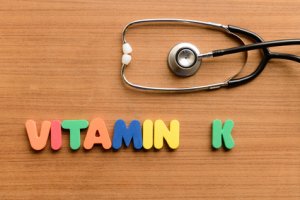 Vitamin K2 clears calcium from the bloodstream and embeds it in bone tissue. Therefore, vitamin K2 is of vital importance to bone building and the prevention of atherosclerosis. Medical News Bulletin has placed even more focus on vitamin K2’s role in maintaining strong bones and reducing the risk of a fracture. The question is, how much vitamin K2 do we really need for optimal bone health, and why is it important to know the difference between vitamin K1 and vitamin K2?
Vitamin K2 clears calcium from the bloodstream and embeds it in bone tissue. Therefore, vitamin K2 is of vital importance to bone building and the prevention of atherosclerosis. Medical News Bulletin has placed even more focus on vitamin K2’s role in maintaining strong bones and reducing the risk of a fracture. The question is, how much vitamin K2 do we really need for optimal bone health, and why is it important to know the difference between vitamin K1 and vitamin K2?
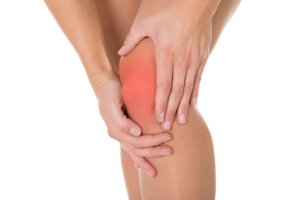 According to researchers, women with weak thighs and hamstrings have an increased risk of developing knee osteoarthritis. Of course, leg muscle exercise is important for preventing this condition, but adequate nutrient intake and maintenance of the right body weight also contribute. For those who are already affected by knee osteoarthritis, glucosamine supplements can be useful. Make sure to choose glucosamine sulfate and to stick with glucosamine supplements that are listed as medical drugs if you want to be sure to obtain the desired effect.
According to researchers, women with weak thighs and hamstrings have an increased risk of developing knee osteoarthritis. Of course, leg muscle exercise is important for preventing this condition, but adequate nutrient intake and maintenance of the right body weight also contribute. For those who are already affected by knee osteoarthritis, glucosamine supplements can be useful. Make sure to choose glucosamine sulfate and to stick with glucosamine supplements that are listed as medical drugs if you want to be sure to obtain the desired effect.
 Many people avoid dairy products because they are lactose intolerant, are vegan, or for other reasons. Milk is a good source of nutrients, especially calcium, but you can easily get enough calcium from other food sources. What is more, it appears that vitamin D, vitamin K2, and the calcium/magnesium ratio is even more important than calcium alone for the structure and maintenance of strong bones. Another thing to remember is that sugar, soft drinks, stimulants, and certain types of medicine can disrupt the bone-building processes. Therefore, having strong bones is about a lot more than dairy products and calcium alone. Finally, don’t forget that daily weight-bearing exercise stimulates bone density.
Many people avoid dairy products because they are lactose intolerant, are vegan, or for other reasons. Milk is a good source of nutrients, especially calcium, but you can easily get enough calcium from other food sources. What is more, it appears that vitamin D, vitamin K2, and the calcium/magnesium ratio is even more important than calcium alone for the structure and maintenance of strong bones. Another thing to remember is that sugar, soft drinks, stimulants, and certain types of medicine can disrupt the bone-building processes. Therefore, having strong bones is about a lot more than dairy products and calcium alone. Finally, don’t forget that daily weight-bearing exercise stimulates bone density.











 Lack of
Lack of  Fragile bones, also known as osteoporosis, is an insidious scourge. Science has its eyes on
Fragile bones, also known as osteoporosis, is an insidious scourge. Science has its eyes on  We consume far too much sugar from candy, soft beverages or in the form of concealed sugar in our food. This impairs the body’s uptake and utilization of
We consume far too much sugar from candy, soft beverages or in the form of concealed sugar in our food. This impairs the body’s uptake and utilization of 

 According to researchers, women with weak thighs and hamstrings have an increased risk of developing knee osteoarthritis. Of course, leg muscle exercise is important for preventing this condition, but adequate nutrient intake and maintenance of the right body weight also contribute. For those who are already affected by knee osteoarthritis, glucosamine supplements can be useful. Make sure to choose glucosamine sulfate and to stick with glucosamine supplements that are listed as medical drugs if you want to be sure to obtain the desired effect.
According to researchers, women with weak thighs and hamstrings have an increased risk of developing knee osteoarthritis. Of course, leg muscle exercise is important for preventing this condition, but adequate nutrient intake and maintenance of the right body weight also contribute. For those who are already affected by knee osteoarthritis, glucosamine supplements can be useful. Make sure to choose glucosamine sulfate and to stick with glucosamine supplements that are listed as medical drugs if you want to be sure to obtain the desired effect. "After about one week of taking the Q10 supplement I could feel a huge difference," says 23-year old Alan Piccini, who has been suffering from extreme fatigue and muscle aches ever since he was a child.
"After about one week of taking the Q10 supplement I could feel a huge difference," says 23-year old Alan Piccini, who has been suffering from extreme fatigue and muscle aches ever since he was a child. “Taking capsules with co-enzyme Q10 has freed me of the severe side effects of my cholesterol lowering medicine,” Mrs Franken explains.
“Taking capsules with co-enzyme Q10 has freed me of the severe side effects of my cholesterol lowering medicine,” Mrs Franken explains.